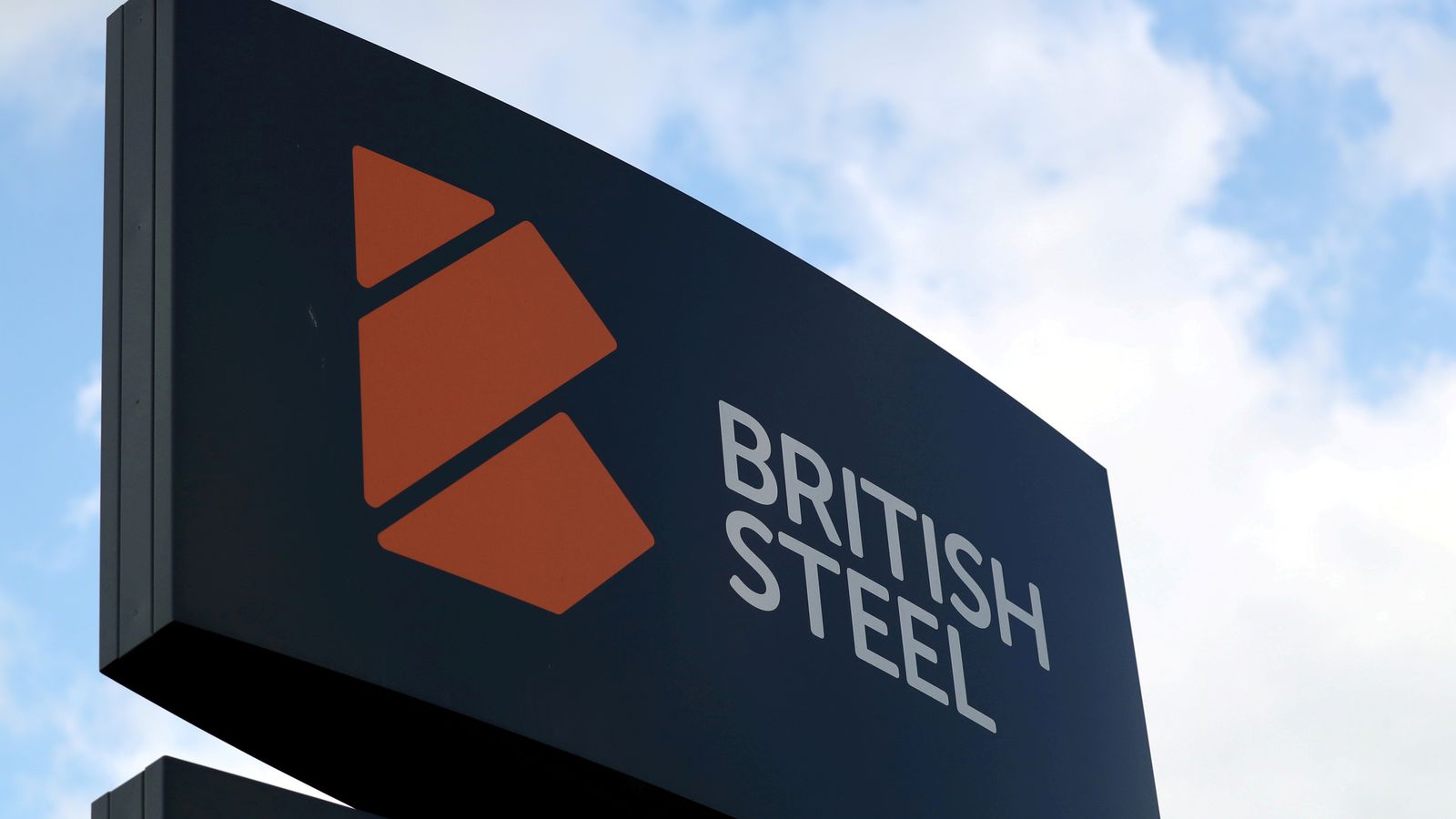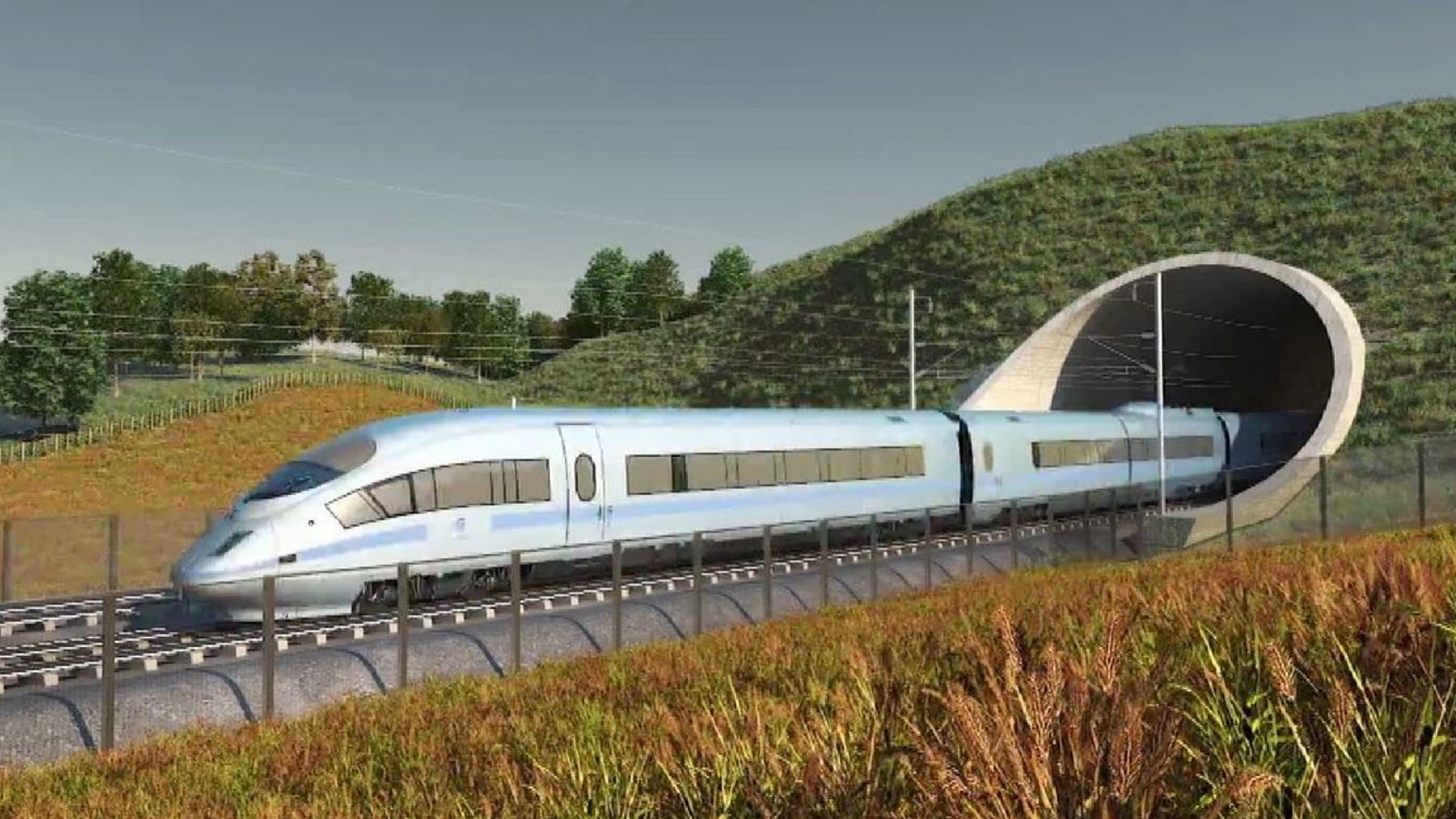Britain’s two biggest steelmakers would be required to guarantee thousands of jobs for a decade in return for £600m of government support to help decarbonise the industry.
Sky News has learnt that Grant Shapps, the business secretary, has told Tata Steel and British Steel that they must safeguard UK-based jobs for ten years if they are to receive taxpayer funding.
A steel industry source said on Friday that the two companies had yet to be told what proportion of their workforces would need to be guaranteed until 2033, with the numbers to be determined after further discussions with government officials.
An executive at one of the companies said they had been told that a six-month moratorium on redundancies was one of the conditions of the government offer.
Last week, Sky News revealed that British Steel, the UK’s second-biggest steel producer, was close to agreeing a £300m aid package with Mr Shapps.
The Financial Times subsequently reported that the same offer had been extended to Tata Steel, its larger rival, and that a carbon border tax would be levied on imported steel under Whitehall’s plans.
The government funding is to be linked to the replacement of blast furnaces at the company’s sites with greener electric arc furnaces.
Jingye Group, British Steel’s Chinese owner, would be obliged to invest at least £1bn in the business by 2030, with Tata Steel expected to be asked for a similar commitment.
The decision to grant the state aid is not without controversy, given British Steel’s Chinese ownership and doubts about its adherence to financial commitments made when it bought the business out of insolvency proceedings in 2020.
In a letter to Jeremy Hunt, the chancellor, in December, Mr Shapps and Michael Gove, the levelling-up secretary, warned that British Steel’s demise could cost the government up to £1bn in decommissioning and other liabilities.
They cautioned Mr Hunt that British Steel “does not have a viable business without government support”.
“Closing one blast furnace would be a stepping-stone to closure of the second blast furnace, resulting in a highly unstable business model dependent on Chinese steel imports,” Mr Shapps and Mr Gove wrote.
Please use Chrome browser for a more accessible video player
“Given the magnitude of the liabilities due to fall on HMG in the event of blast furnace closure, and following the PM’s steer, we would like officials to test whether net Government support in the region of £300m for British Steel could prevent closure, protect jobs and create a cleaner viable long-term future for steel production in the United Kingdom.”
They also argued that retaining sovereignty over steel production was critical to the UK economy.
“Every other G20 nation has maintained domestic steel production and, while we do not think that this should come at any cost, we do believe it is in HMG’s interest to offer well-designed and targeted funding which unlocks private investment, achieves a good outcome for taxpayers, and enables transformed , decarbonised and viable domestic steel production to continue in the UK in the long-term,” Mr Shapps and Mr Gove wrote.
“We do not want to become reliant on steel sources elsewhere in the same way that energy security has become self-evidently important.
The fate of British Steel, which was bought by Jingye out of an insolvency process just under three years ago, has become increasingly unclear in recent months as the current owners have indicated that they would not maintain its operations without taxpayer funding.
British Steel employs about 4,000 people, with thousands more jobs in its supply chain dependent upon the company.
Tata Steel employs substantially more people in the UK, including more than 4,000 at its Port Talbot steelworks in Wales.
According to last month’s letter, British Steel had already informed the government that it could close one of the Scunthorpe blast furnaces as soon as next month, with the loss of 1,700 jobs.
This would be “followed by the second blast furnace closing later in 2023, creating cumulative direct job losses of around 3,000”, Mr Shapps and Mr Gove wrote.
In May 2019, the Official Receiver was appointed to take control of the company after negotiations over an emergency £30m government loan fell apart.
British Steel had been formed in 2016 when India’s Tata Steel sold the business for £1 to Greybull Capital, an investment firm.
As part of the deal that secured ownership of British Steel for Jingye, the Chinese group said it would invest £1.2bn in modernising the business during the following decade.
Jingye’s purchase of the company, which completed in the spring of 2020, was hailed by Boris Johnson, the then prime minister, as assuring the future of steel production in Britain’s industrial heartlands.
The Department for Business, Energy and Industrial Strategy has been contacted for comment.










